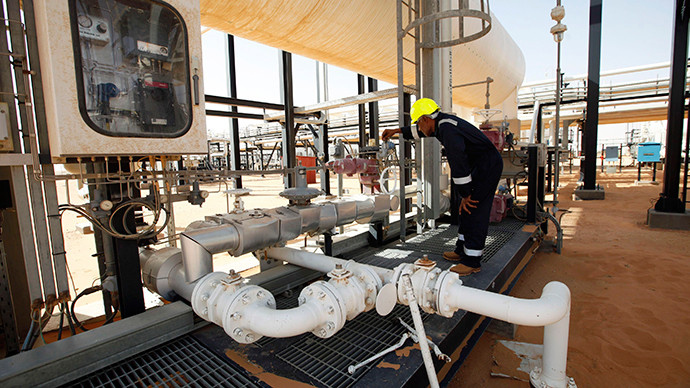Saudi Arabia expected to keep oil policy unchanged

The current rise in oil prices will be short-term as Saudi Arabia is unlikely to reconsider its oil policy after the death of King Abdullah, financial experts told RT.
“The Saudi king has not been taking an active part in running the country for several years, so the market knew that the king was old, and now there are no expectations that Saudi Arabia will change its policy,” Valery Nesterov, oil and gas analyst at Sberbank-CIB, told RT.
Oil rose on the news of the Saudi king’s death with March futures for Brent and WTI adding 3.1 percent and 2.6 percent, respectively. Brent crude reached $49.69 a barrel on London's ICE Futures Exchange at 8:40 AM GMT. The price for March futures of WTI crude oil went up to $ 47.28 per barrel on NYMEX.
READ MORE: Oil spikes after Saudi king's death
However, Nesterov said such a leap should not be considered as a long-term positive trend.
“Market reaction to the news of the Saudi king’s death was pretty moderate,” he said. “There’s no huge optimism that the prices go up significantly.”
Nesterov said one of the key reasons for oil’s volatility is shale production in the US. After OPEC decided against cutting oil production, “the cartel and Saudi Arabia lost the key leverages on the oil market,” he added.
READ MORE: Oil slumps into tailspin as OPEC leaves output unchanged
Analysts from Finance Freedom agree that the shift in Saudi Arabian power won’t have any effect on the price of oil.
“We believe that short-term prices may rise by 5-7 percent, but the policy of Saudi Arabia will remain the same, which means there won’t be a radical growth in oil prices in the coming months,” they said in an e-mail, adding that was no surprise to market participants.
Saudi Arabia is the largest oil producer in OPEC and the world, and accounts for about 30 percent of the cartel’s output. “In the past six months it’s been officially pursuing the policy of squeezing shale producers out of the market and the monarch’s death is unlikely to change it,” said FOREX CLUB analyst Valery Polkhovskiy.
On January 6 Crown Prince Salman bin Abdulaziz said in a speech on behalf of the king he intended to continue his policy.
On Thursday HSBC released an economic outlook for the economies of oil exporting countries in 2015 where its experts predicted a budget deficit in Saudi Arabia of around 11 percent.
READ MORE: Saudi Arabia braces for $39bn deficit, to cut wages due to low oil prices
“However, given the volume of the country’s foreign reserves, that doesn’t pose any significant threats to Saudi macroeconomic stability and does not require any emergency response,” Polkhovskiy commented on the statement.












